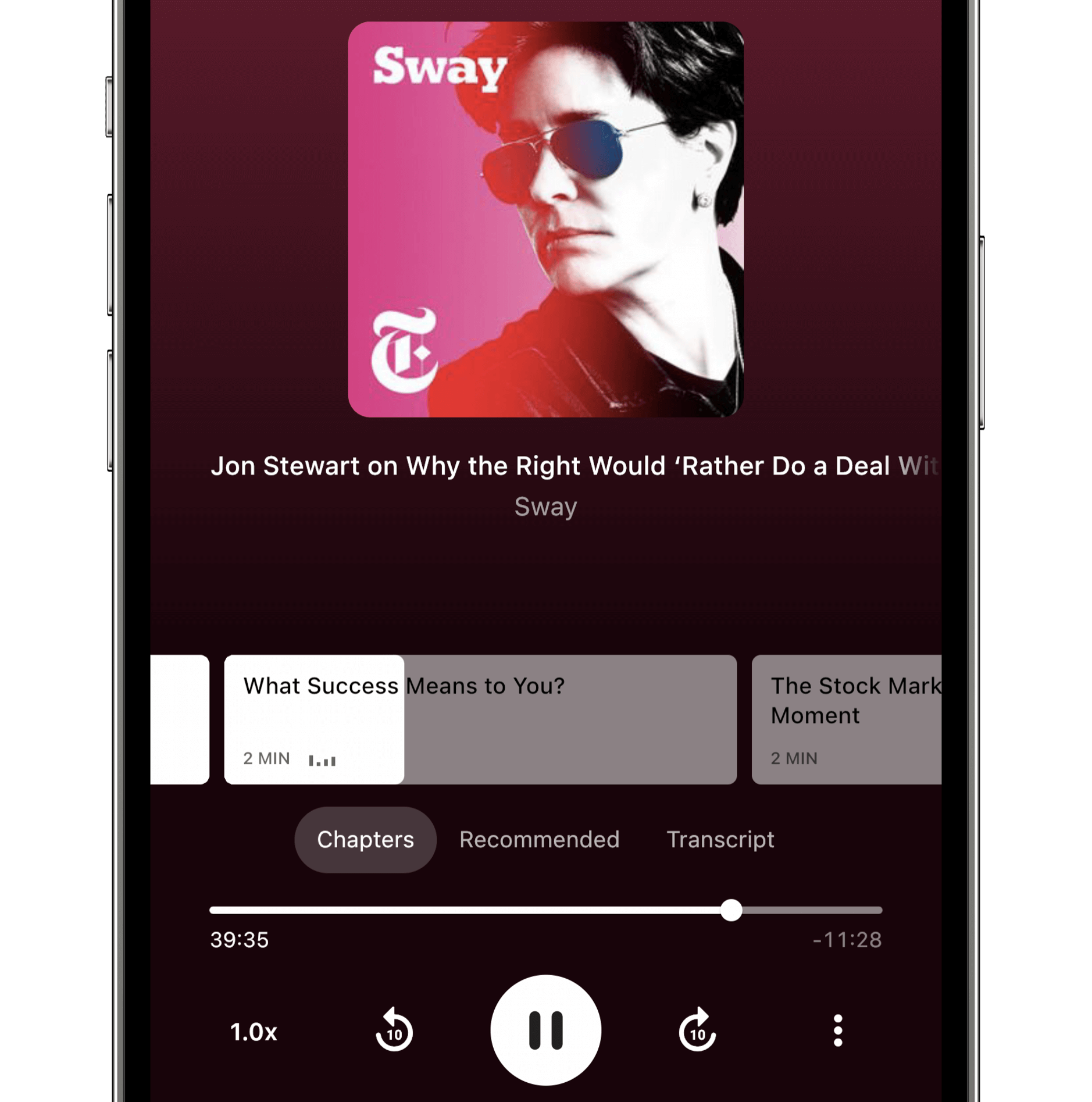„Seriously, I could have done Lasso…“

Kara Swisher: Why did you pick Apple over say Comedy Central, where ratings obviously are a big deal?
Jon Stewart: They would let me do what I wanted. And it felt entrepreneurial in a way. And I also wanted to create this podcast. We wanted to try to create kind of a universe of information, where we were boosting some of these voices and figuring things out. It’s entrepreneurial, to some extent, but also within that, what Apple gets out of it: I’m not sure what they want out of a content company. I really don’t. I don’t know, you know, and in some ways we might be antithetical to their business model.
Kara Swisher: Honestly, I think Apple wants to sell iPhones. I think Amazon wants to sell toilet paper.
Jon Stewart: But that’s what I mean, that it may not be in their interests, to have a provocateur. But I do know, they’ve been incredibly supportive, and have given us the resources to do it. And when you think about it, success is not just about its impact in the world, it’s also about its impact on the people you work with. And their sense of satisfaction and growth, and engagement. And I really want to make something that I feel like we’re challenging ourselves to – not to co-opted phrase from my benefactors „think differently“.
TV+ ist für Apple (auch) ein Prestigeobjekt. Man schmückt sich mit (Oscar-)Nominierungen und großen Namen. Jon Stewart ist ein solcher Name. Und Jon Hamm ist bestimmt auch bald dabei …

➝ Video
Dieser Fokus auf (Hollywood-)Stars war seit der ersten (grausamen) Keynote recht deutlich. Neben (ein wenig) Geld wird „They would let me do what I wanted“ bei vielen Beteiligten eine entscheidende Rolle geschaupielt haben.
Wie positiv die Promis auf Apple als Marke abfärben, und ob sich’s finanziell rechnet, wird intern beantwortet werden müssen. Erst im letzten Sommer beendete der Streaming-Dienst seine lange Gratisphase; weiterhin unterbietet TV+ mit einem Monatspreis von 5 Euro die Konkurrenz.